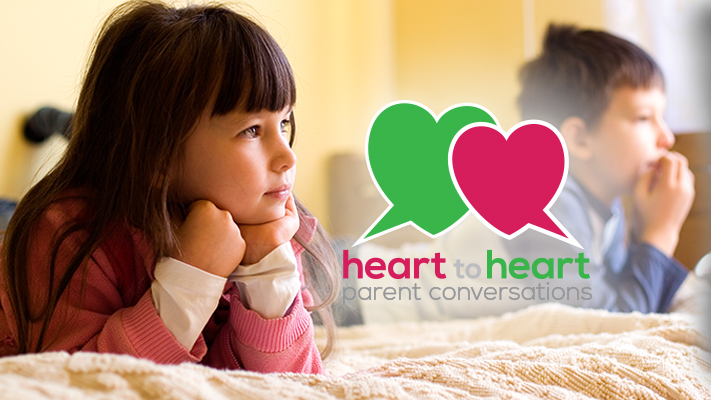 |
How can we prepare children for summer camp?
When I was going into eighth grade, I went to band camp for a week during the summer. I had a blast, and the experience really gave me confidence in my own independence.
I want my children to have a similar camp experience. I’m excited because we live in an area where we can choose from a number of WELS camps for them to attend. They can have all the fun, surrounded by Christian friends and mentors. Bonus! Of course, that doesn’t mean I don’t have some qualms . . . which is where this month’s articles come in. No matter what type of camp your child might be attending, both Dan and Jenni offer some great tips to help make the experience a success.
Nicole Balza
“It’s time for camp!”
These four words are the highlight of our family’s year every summer. I have had the privilege of serving as a camp leader at Camp Bird in Crivitz, Wis., for many years. Camp Bird is a week long Christian youth camp for kids in fifth to eighth grade. This year my son Josh will be in his last year as a camper and my daughter Kayla will be in her third year as a camp counselor. For nearly 30 years my wife and I have been volunteering at Camp Bird. We have seen kids create memories and friendships that last a lifetime.
We are blessed to have a great network of Christian youth camps in our synod. As thousands of families prepare for their children’s camp experiences, this question comes to mind: How can parents help prepare their kids for a youth camp experience so their kids can have a terrific time? Here are a few things I have noticed over the years as I have interacted with families and seen some excellent examples of encouragement:
- Go with a friend—This is perhaps one of the best ways to help kids feel comfortable with a new camp experience.Knowing just one other person can help them not feel alone and make it easier to meet others.
- Know the camp—It’s easy to be afraid of what is unknown or unfamiliar.Review the camp website or printed materials with your child. Look at the pictures and videos. Check out the daily schedule. Review information on the staff. Find out what to pack, etc.
- Talk to others—Talk to parents and kids who have been at the summer camp in the past to find out what their experience was like and what to expect.
- Meet the staff—Before you leave the camp at drop-off time, introduce yourself and your child to some of the staff. This can not only help you feel more comfortable leaving your child with others, but it can also help the child know exactly who he can go to if he has questions.
- Focus on the experiences your child can have—Talk about all the fun experiences the camp has to offer! Swimming, kayaking, basketball, hiking, ropes courses, campfires, archery, kickball, singing, crafts, and all the other activities.
- “But what about . ..” —Acknowledge the things that may be concerns for your child and reassure him that you will find answers to the “what about” questions. Your child may be worried if he has special dietary needs, medications, or other concerns. It’s helpful to get specific answers so your child knows what to expect.
- Communicate—It is helpful to have boundaries and expectations set regarding communication with your child while at camp. There may be limits on the ability to communicate with phones, but maybe cards, letters, postcards can be used. Find out the recommended communication procedures and let your child know how you will use them.
- Stuff—What’s one of the simplest ways to make sure your child has a great time? Make sure she packs the right things. Get a supply list from the camp and go through it with your child. Packing itself can be a fun experience, but make sure she has the essentials like mosquito spray and sunblock.
- Food—What’s top on the list of the best parts of a camp experience? The food! What’s on the menu at camp? I remember one child who came to camp worried about what he would make himself to eat! Not too many camps I know would ever expect a fifth-grader to make his own meals! He was pretty excited to hear the meals would be all prepared for him. But this was a concern that he never expressed to anyone until arrival.
Parents, these are just a few ways to help your children prepare for their summer camp experiences. Separation from our kids can not only be anxiety-provoking for our kids but also for us as well. Seeing them prepared and excited can help alleviate some of our anxiety. You also might want to ask the camp if there will be Facebook posts or other updates so you can see how things are going at the camp.
Take advantage of the opportunity to see your child enjoy a Christian summer youth camp. Consider using some of the techniques above to help her prepare for her time away as she expands her experiences with new activities and meets new friends. Use this time of preparation to communicate with your child and be understanding, encouraging, and reassuring.
Dan Nommensen
I love camp!
When I was a kid I went to soccer camp and basketball camp and Camp Phillip, a Christian camp in Wautoma, Wis. My love for Camp Phillip grew as I got older. I became part of the junior staff (high school volunteers) and then paid staff. It then moved into my full-time job when I graduated college. As a camp counselor, I saw hundreds of children get dropped off at camp—some for the first time and some who kept returning.
As familiar as I am with camp life, it was a crazy different perspective to be the one dropping off her child. As a mom, I have been dropping off my children at camp for the past ten years. Every year comes with excitement and anxiousness. How do I prepare myself? How do I prepare my child? Here are a few thoughts:
- Let him help pack. Go through the list so you don’t forget anything. And let him pack it so he knows where everything is.
- Make writing to you easy. Pack paper and self-addressed stamped envelopes. That way it is easy for her to write to you if she would like to. Also know that she might be having way too much fun to write, so give her permission not to write. After all, we want our children to focus on where they are and enjoy that!
- Write a letter to him. I’ll be honest, I always think about this one too late. But maybe this can help you. Write him a letter and send it a day or two before camp starts. That way he gets a letter right away (see point #5 when writing).
- DON’T LINGER! When you drop her off, introduce yourself and your child to the counselor. Help her get situated (make her bed, etc.), give her a hug, and go.
- Leave your child with confidence. As a counselor I could pick out the kids who would probably be homesick. Why? Because their parents gave them permission to be homesick by saying things like, “If you get sad, you can call me” or “I am going to miss you soooo much!” or “I can’t wait until I see you on Saturday!” Instead say, “You are going to have such a good time” or “I can’t wait to hear all about the fun you’re going to have this week.” Put the focus on why they are there instead of “missing” them, even though you are going to miss them. Cry after you are gone.
I truly believe in the camping ministry. It allows children to be who they are. It gives them the opportunity to see young adults model loving Jesus and loving others, including your child. It also gives your child a small piece of independence. After all, our goal as parents is to teach our children how to fly.
Jenni Schubring
Author: Multiple Authors
Volume 106, Number 6
Issue: June 2019
- Parent conversations: How can parents and kids manage stress?
- Parent conversations: What do your prayers for your children include?
- Parent conversations: How do we resist making our parenting law-based?
- Parent conversations: What Bible passages do you turn to most as a parent?
- Parent conversations: How can we help kids develop positive, healthy habits?
- Parent conversations: What tactics do you use to encourage children to tackle difficult tasks?
- Parent conversations: How can we model good listening skills for our kids?
- Parent conversations: How do we help our kids move on from mistakes?
- Parent conversations: How can we instill gratitude in our children?
- Parent conversations: How can parents find the balance between being too restrictive and too permissive?
- Parent conversations: How can we teach kids to be good friends?
- Parent conversations: What life skills will help young people as they transition to adulthood?
- Parent conversations: How do we discuss death with our children?
- Parent conversations: What does it look like for a father to be a strong Christian leader?
- Parent conversations: How can we help young adults stay engaged in the church?
- Parent conversations: What do parents need to know about video games?
- Parent conversations: How do parents not let worry get the best of them?
- Parent conversations: How do we teach our kids to value all people?
- Parent conversations: When parenting philosophies differ
- Parent conversations: How can we help today’s overwhelmed teens?
- Parent conversations: How can parents maintain a healthy marriage?
- Parent conversations: You might be a Lutheran parent if . . .
- Parent conversations: Parenting post–high school: What is a parent’s role?
- Parent conversations: How can families use the hymnal in their worship life at home?
- Parent conversations: What should Christian parents teach their children about gender?
- Parent conversations: What is vocation? How does it apply to parenting?
- Parent conversations: Why do siblings fight? How should I react when they are fighting?
- Parent conversations: How do we teach children resilience?
- Parent conversations: How do I approach vaccines as a Christian parent?
- Parent conversations: How can I explain the Sixth Commandment to a young child?
- Parent conversations: How can I help my child have an optimistic outlook?
- Parent conversations: What if we can’t follow our Christmas traditions this year?
- Parent conversations: What are ways to foster a rich prayer life in children?
- Parent conversations: How can I let the gospel shine as I parent?
- Parent conversations: How should I handle a child’s separation anxiety?
- Parent conversations: How should families prepare to go back to school?
- Parent conversations: How does a teen’s brain work?
- Parent conversations: How much should I monitor my child online?
- Parent conversations: How can parents reassure children during an uncertain time?
- Parent conversations: How can I stay calm when my child is out of control?
- Parent conversations: Should I give something up for Lent?
- Parent conversations: How can I keep my child engaged in attending church?
- Parent conversations: How can we help a stressed-out kid?
- Parent conversations: How can we nurture a proper view of “stuff”?
- Parent conversations: How involved should parents be in a child’s homework?
- Heart to heart: Parent conversations: Are we modeling kindness for our children?
- Heart to heart: Parent conversations: What’s the best parenting advice you’ve received or given?
- Heart to heart: Parent conversations: How should we handle it when people undermine our parenting decisions?
- Parent conversations: How can we prepare children for summer camp?
- Heart to heart: Parent conversations: What’s a parent’s role as a child dates?
- Heart to heart: Parent conversations: How do parents find contentment?
- Heart to heart: Parent conversations: How can we help a family with a sick parent?
- Heart to heart: Parent conversations: How can parents model healthy cell phone use?
- Parent conversations: How can we protect kids without scaring them?
- Parent conversations: What does your family’s bedtime routine look like?
- Parent conversations: What do I need to consider before I give my child a cell phone?
- Parent conversations: How can we teach gentleness and strength at the same time?
- Parent conversations: What should we do when our children grow silent?
- Parent conversations: What should we teach our children about the Reformation?
- Parent conversations: Why should children obey their parents?
- Parent conversations: How does a parent’s role change over time?
- Parent conversations: How should I handle a disagreement with my child’s teacher?
- Parent conversations: What are the building blocks of a strong parent/child relationship?
- Parent conversations: What is our goal as parents?
- Parent conversations: What Christmas traditions do you cherish in your family?
- Parent conversations: How can we raise a generation that cherishes life?
- Parent conversations: What are the best Bible story books for family devotions?
- Parent conversations: Do we want our children to be leaders or followers?
- Parent conversations: How can parents reinforce the importance of confirmation in their child’s life?







